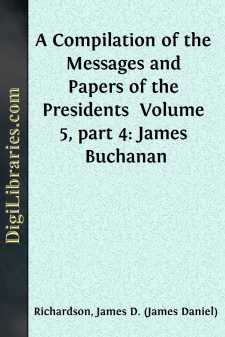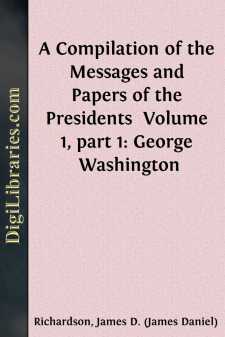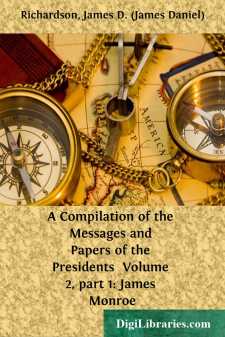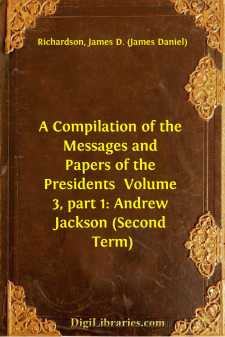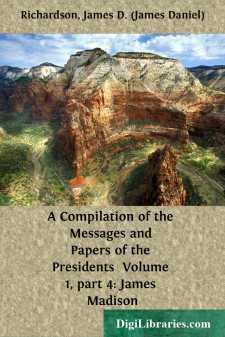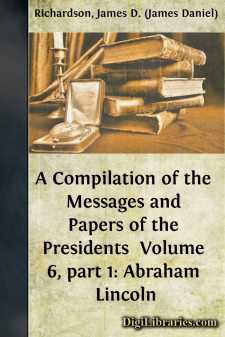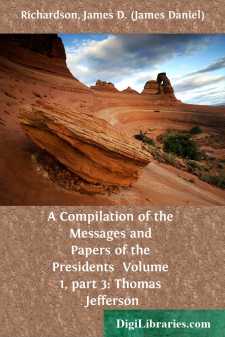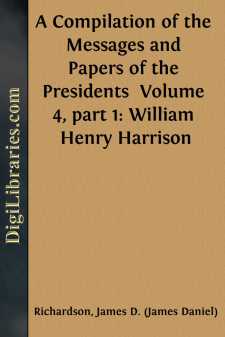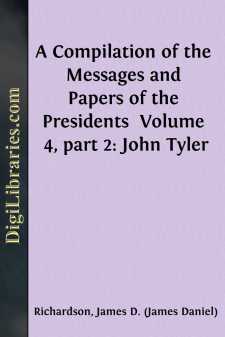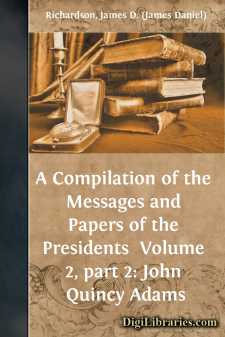Categories
- Antiques & Collectibles 13
- Architecture 36
- Art 48
- Bibles 22
- Biography & Autobiography 813
- Body, Mind & Spirit 142
- Business & Economics 28
- Children's Books 14
- Children's Fiction 11
- Computers 4
- Cooking 94
- Crafts & Hobbies 4
- Drama 346
- Education 46
- Family & Relationships 57
- Fiction 11829
- Games 19
- Gardening 17
- Health & Fitness 34
- History 1377
- House & Home 1
- Humor 147
- Juvenile Fiction 1873
- Juvenile Nonfiction 202
- Language Arts & Disciplines 88
- Law 16
- Literary Collections 686
- Literary Criticism 179
- Mathematics 13
- Medical 41
- Music 40
- Nature 179
- Non-Classifiable 1768
- Performing Arts 7
- Periodicals 1453
- Philosophy 64
- Photography 2
- Poetry 896
- Political Science 203
- Psychology 42
- Reference 154
- Religion 513
- Science 126
- Self-Help 84
- Social Science 81
- Sports & Recreation 34
- Study Aids 3
- Technology & Engineering 59
- Transportation 23
- Travel 463
- True Crime 29
A Compilation of the Messages and Papers of the Presidents Volume 5, part 4: James Buchanan
Categories:
Description:
Excerpt
James Buchanan
James Buchanan was born near Mercersburg, Pa., April 23, 1791. His father, James Buchanan, a Scotch-Irish farmer, came from the county of Donegal, Ireland, in 1783. His mother was Elizabeth Speer. The future President was educated at a school in Mercersburg and at Dickinson College, Pennsylvania, where he was graduated in 1809. Began to practice law in Lancaster in 1812. His first public address was made at the age of 23 on the occasion of a popular meeting in Lancaster after the capture of Washington by the British in 1814. Although a Federalist and with his party opposed to the war, he urged the enlistment of volunteers for the defense of Baltimore, and was among the first to enroll his name. In October, 1814, was elected to the legislature of Pennsylvania for Lancaster County, and again elected in 1815. At the close of his term in the legislature retired to the practice of the law, gaining early distinction. In 1820 was elected to Congress to represent a district composed of Lancaster, York, and Dauphin counties, and took his seat in December, 1821. He was called a Federalist, but the party distinctions of that time were not clearly defined, and Mr. Buchanan's political principles as a national statesman were yet to be formed. His first speech in Congress was made in January, 1822, sustaining the Administration of President Monroe, and of John C. Calhoun, Secretary of War, in particular, with reference to a military establishment. President Monroe's veto, in May, 1822, of a bill imposing tolls for the support of the Cumberland road, for which Mr. Buchanan had voted, produced a strong effect upon his constitutional views, and he began to perceive the dividing line between the Federal and the State powers. He remained in the House of Representatives ten years—during Mr. Monroe's second term, through the Administration of John Quincy Adams, and during the first two years of Jackson's Administration. In December, 1829, became chairman of the Judiciary Committee of the House. During Mr. Adams's term the friends of the Administration began to take the name of National Republicans, while the opposing party assumed the name of Democrats. Mr. Buchanan was one of the leaders of the opposition in the House of Representatives. Was always a strong supporter and warm personal friend of General Jackson. In March 1831, at the close of the Twenty-first Congress, it was Mr. Buchanan's wish to retire from public life, but at the request of President Jackson he accepted the mission to Russia; negotiated a commercial treaty with that country. August 8, 1833, left St. Petersburg, spent a short time in Paris and London, and reached home in November. In 1834 was appointed one of the commissioners on the part of Pennsylvania to arrange with commissioners from New Jersey concerning the use of the waters of the Delaware River. December 6, 1834, was elected to the United States Senate to fill a vacancy, and was reelected in January, 1837. Was conspicuous in the Senate as a supporter of Jackson's financial policy throughout his Administration and that of his successor, Mr....


